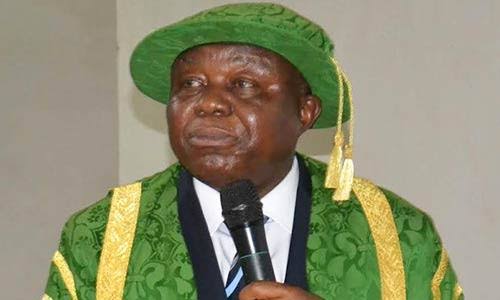Vice-Chancellor of the University of Nigeria Nsukka (UNN), Prof. Charles Igwe, has urged engineers to find solution to unstable electricity supply in the country.
Igwe said this in Nsukka on Friday during the 19th Herbert Macaulay Memorial Lecture, organised by the Faculty of Engineering with the theme: “The Path to Stable Electricity in Nigeria: An Engineer’s Challenge”.
Perennial disruptions to
Power supply has become a major problem to production in the country.
He said that stable electricity played vital role in the development and industrialisation of any country.
“Engineers should rise up to find solution to problems preventing the country from achieving stable electricity supply that will boost the economy and create more employment opportunities.
“The theme of this lecture is apt, giving the present situation in Nigeria where epileptic power supply is the order of the day.
“I strongly believe that this gathering which comprises engineers from different walks of life will proffer solution to epileptic power supply in Nigeria,” he said.
The vice-chancellor, however, extolled the qualities and numerous contributions of the late Macaulay to engineering profession in particular and the country in general.
In a remark, Mr Obioha Fubara, an Alumnus of Engineering Faculty and Group Managing Director, Hobark International Ltd., urged engineers to strive to become greater than Macaulay.
“Engineers have to lead from the front and show the nation that their profession is the one that drives national development in all facets by direct approach.
“There is a lot of infrastructure gap in the country; so let us be propelled by the progress made by Macaulay and continue to push onward until we reach our final goal,” Fubara said.
The Managing Director, Azura Power WA Ltd., Mr Henry Okeke, said Nigerians was hopeful that privatisation of Power Holding Company of Nigeria (PHCN) in November 2003 would have solved unstable power supply.
Okeke said that inadequate generation, transmission and distribution were obstacles for people to enjoy stable electricity supply.
“In November 2003, when Federal Government privatised PHCN, Nigerians taught the problem was over but many had been proved wrong.
“For a country like Nigeria that has an estimated population of over 150 million, less than 3,000 Mega Watts of electricity generation is inadequate.
“To achieve stable electricity supply, government knows the country needs no fewer than 20,000 Mega Watts,” he said.
Okeke, however, said that investors were skeptical on how to recoup money invested because of irregular payment by electricity consumers.
“Power generation is cost-effective, so the inability of some customers to pay for service rendered have been a drawback to electricity distribution companies in the country,” he said.
An Engineer and Managing Director, Ixzora Laboratories, Mr James Agada, in a keynote address, said that the problems of stable electricity were technical, political and economic challenges.
“However, these challenges represent an opportunity for engineers to devise solutions that are affordable to allow individuals and corporate bodies to generate the needed electricity.
“It is also an opportunity for policy makers to create an environment and structure where such power generation can be fed back to the public grid,” he said
Earlier, the Dean, Faculty of Engineering, UNN, Prof. Emeka Obe, said that electricity remained the key driver of every modern economy.
According to him, electricity is the base of infrastructure on which nearly every other infrastructure relies.
“Every industrial process requires electricity at nearly all levels of production,” Obe said.
The don said that the lecture provided people the avenue to interact with distinguished professionals who had the love for the faculty and the university at heart.


